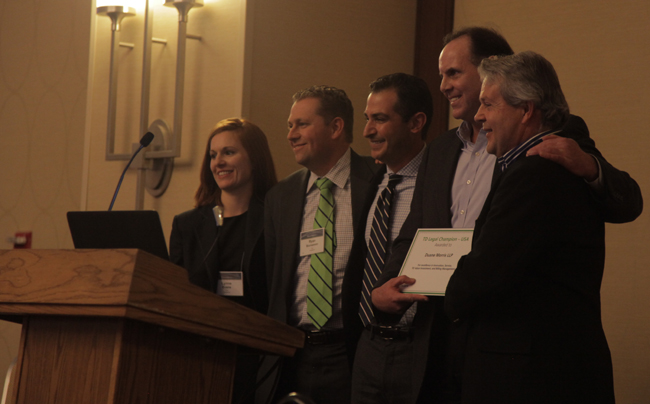By Steven D. Ginsburg and Kenneth B. Franklin
The Consumer Finance Protection Bureau (“CFPB”) recently announced that it was considering a rule that would ban consumer financial companies from using arbitration clauses in their customer agreements to block class action lawsuits. According to a study by the CFPB, financial institutions often rely on arbitration clauses to block group lawsuits. The CFPB took issue with this practice because it claims that very few consumers were aware of the arbitration clauses or understood what they meant. As a result, either because of ignorance or an unwillingness to pursue individual grievances, the CFPB found that even though millions of consumers would be entitled to relief through group settlements, very few individual customers actually seek relief through arbitration.
With these findings in mind, the CFPB initiated the process to implement a regulation that would prohibit finance companies from including arbitration clauses that would preclude class action lawsuits in their consumer agreements. The new rule would encompass most of the consumer financial products the CFPB regulates, including credit cards, checking and deposit accounts, prepaid cards, money transfer services, some auto loans, auto title loans, payday loans, private student loans and installment loans. Arbitration clauses are already prohibited in consumer mortgages under the Dodd-Frank Act.
The CFPB does not propose banning arbitration clauses from consumer finance agreements all together. Rather, arbitration clauses would be permissible as long as they explicitly allow cases to be filed as class actions unless and until the class certification is denied by the court, or the class claims are dismissed in court. Financial companies would also have to submit any initial arbitration claim filings and awards issued to the CFPB to “ensure” the fairness of the arbitration process.
Although the CFPB is still in the early stages of considering this rule change, our clients should carefully monitor the progress of this new rule and, if appropriate, voice any concerns they may have with the new rule when the CFPB solicits public comments.
More information about the CFPB’s proposed new rule can be found at:
http://www.consumerfinance.gov/newsroom/cfpb-considers-proposal-to-ban-arbitration-clauses-that-allow-companies-to-avoid-accountability-to-their-customers/

 About Steven D. Ginsburg
About Steven D. Ginsburg About Kenneth B. Franklin
About Kenneth B. Franklin